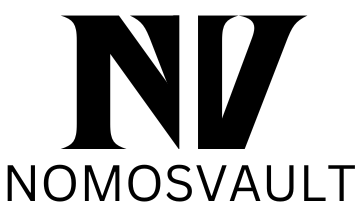Why Trademark Registration Matters
Imagine this: You’ve poured your heart and soul into building your business. You’ve crafted a unique name, designed a memorable logo, and created products or services that stand out in the market. Your brand is more than just a name—it’s your identity, your reputation, and your promise to your customers.
But what happens if someone else starts using a name or logo that looks eerily similar to yours? Suddenly, your hard-earned reputation is at risk. Customers might get confused, sales could drop, and your brand’s value could take a serious hit.
This is where a trademark registration lawyer comes in—a legal expert who specializes in helping businesses protect their brand identity through trademark registration and enforcement. Whether you’re a small startup or a growing enterprise, understanding how to register and safeguard your trademark is crucial to securing your place in the market.
What Is a Trademark?
Breaking Down the Basics
A trademark is any word, phrase, symbol, design, or combination thereof that identifies and distinguishes the source of goods or services. Think of it as a badge of authenticity—it tells customers that a product or service comes from you and not someone else.
Examples of trademarks include:
- Brand Names: Nike, Coca-Cola, Apple.
- Logos: The golden arches of McDonald’s, the swoosh of Nike.
- Slogans: “Just Do It” (Nike), “I’m Lovin’ It” (McDonald’s).
Why Does a Trademark Matter?
A trademark isn’t just a fancy legal term—it’s a powerful tool for protecting your business. Here’s why it matters:
- Brand Recognition: A trademark helps customers identify your products or services.
- Legal Protection: It gives you exclusive rights to use your mark nationwide.
- Competitive Advantage: It prevents others from using a similar name or logo, reducing confusion in the marketplace.
Real-Life Example: Sarah’s Story
Sarah started a handmade jewelry business and named it “Gemstone Glow.” At first, she didn’t think about registering her trademark. Then, a larger company launched a similar line of jewelry under the name “Glowing Gems.” Customers started confusing the two brands, and Sarah lost sales. Desperate to protect her business, she hired a trademark registration lawyer , who helped her file for a trademark and enforce her rights.
Stories like Sarah’s highlight why proper trademark protection isn’t just a formality—it’s essential for long-term success.
Types of Trademarks
Not all trademarks are created equal. Here’s an overview of the most common types:
1. Word Marks
- What It Is: A trademark consisting of words, letters, or numbers (e.g., “Google”).
- Best For: Businesses that want to protect their brand name.
2. Design Marks
- What It Is: A trademark consisting of logos, symbols, or designs (e.g., the Apple logo).
- Best For: Businesses with visually distinctive branding.
3. Combination Marks
- What It Is: A trademark that combines both words and designs (e.g., the Starbucks logo with the mermaid and the word “Starbucks”).
- Best For: Businesses that want to protect both their name and logo.
4. Slogan Marks
- What It Is: A trademark consisting of a catchy phrase or tagline (e.g., “Finger-Lickin’ Good” by KFC).
- Best For: Businesses with memorable marketing slogans.
5. Sound Marks
- What It Is: A trademark consisting of a distinctive sound (e.g., the NBC chimes).
- Best For: Brands with iconic audio elements.
Benefits of Trademark Registration
Why should you go through the trouble of registering your trademark? Here are some compelling reasons:
1. Nationwide Protection
Once registered, your trademark is protected across the entire country, even if you only operate in one state.
2. Legal Presumption of Ownership
Registration creates a legal presumption that you own the mark, making it easier to enforce your rights.
3. Deterrent Against Infringement
A registered trademark sends a clear message to competitors: “This brand is protected.”
USPTO Guide on Trademark Infringement: Avoiding Trademark Infringement .
4. Ability to Sue in Federal Court
If someone infringes on your trademark, you can sue them in federal court, which often leads to faster resolutions.
5. Enhanced Brand Value
A registered trademark adds value to your business, making it more attractive to investors or buyers.
How a Trademark Registration Lawyer Helps You
A trademark registration lawyer plays a vital role in ensuring your trademark is properly registered and protected. Here’s how they add value:
1. Conducting a Comprehensive Trademark Search
Before filing, a lawyer conducts a thorough search to ensure your mark isn’t already in use. This minimizes the risk of rejection or disputes later.
Trademark Search Tools : Trademarkia: Free Trademark Search
2. Preparing and Filing the Application
Trademark applications are complex and require precise wording. A lawyer ensures your application is accurate and complete.
3. Responding to Office Actions
If the U.S. Patent and Trademark Office (USPTO) raises objections, a lawyer drafts responses to address them effectively.
4. Enforcing Your Trademark Rights
If someone infringes on your mark, a lawyer takes action to stop them, whether through cease-and-desist letters or litigation.
5. Monitoring and Renewal
A lawyer helps monitor your trademark for potential infringements and ensures timely renewals to keep it active.
Step-by-Step Guide to Trademark Registration
The trademark registration process involves several steps. Here’s a detailed breakdown:
1. Conduct a Trademark Search
Before applying, ensure your mark isn’t already in use. A trademark registration lawyer uses specialized databases to perform this search.
2. Determine the Appropriate Class(es)
Trademarks are registered under specific classes of goods or services. A lawyer helps you identify the correct ones for your business.
3. Prepare and File the Application
The application includes details like your mark, its usage, and the goods/services it represents. A lawyer ensures accuracy to avoid rejections.
4. Respond to Office Actions
If the USPTO issues an office action (a formal objection), a lawyer drafts a response to resolve the issue.
5. Receive Approval and Publication
Once approved, your mark is published in the Official Gazette, giving others a chance to oppose it.
6. Obtain Registration
If no opposition arises, your trademark is officially registered, and you receive a certificate.
Common Mistakes to Avoid
Even well-meaning business owners can make costly mistakes during the trademark process. Here are some pitfalls to avoid—and how a trademark registration lawyer can help:
1. Skipping the Trademark Search
Failing to search for existing marks can lead to rejection or disputes. A lawyer ensures a thorough search.
2. Choosing a Weak Mark
Generic or descriptive marks are harder to protect. A lawyer advises on choosing a strong, distinctive mark.
3. Filing in the Wrong Class
Incorrect classification can limit your protection. A lawyer ensures accuracy.
4. Ignoring Office Actions
Missing deadlines or providing inadequate responses can derail your application. A lawyer handles this professionally.
5. Neglecting Renewals
Trademarks require periodic renewal. A lawyer keeps track of deadlines to maintain your registration.
Real-Life Success Stories: Clients Who Protected Their Brands
Let’s look at two inspiring examples of how a trademark registration lawyer made a difference:
Case Study #1: Mark’s Startup
Mark founded a tech company and wanted to trademark his app’s name. His lawyer discovered a similar mark already in use but helped him modify the name slightly to secure approval.
Case Study #2: Emily’s Fashion Brand
Emily’s clothing line faced a copycat competitor using a nearly identical logo. Her lawyer filed a lawsuit, resulting in the competitor ceasing use and paying damages.
These stories demonstrate the transformative impact of having a skilled advocate by your side.
FAQs About Trademark Registration Lawyers
- What does a trademark registration lawyer do?
A trademark registration lawyer conducts searches, files applications, responds to objections, and enforces trademark rights. - How much does a trademark registration lawyer cost?
Fees vary based on complexity, but many offer flat-rate packages for standard filings. - Can I register a trademark without a lawyer?
Yes, but hiring a trademark registration lawyer reduces the risk of errors and increases approval chances. - How long does trademark registration take?
The process typically takes 8–12 months, depending on objections or oppositions. - What should I bring to my first meeting with a lawyer?
Bring your business name, logo, product descriptions, and any prior trademark research. - Will my trademark be protected internationally?
No, but a lawyer can guide you through international registration systems like the Madrid Protocol. - Can a lawyer help if my application is rejected?
Absolutely! They draft responses to overcome objections and improve approval odds. - What happens if someone infringes on my trademark?
A lawyer sends cease-and-desist letters or files lawsuits to enforce your rights. - Is there a deadline for renewing a trademark?
Yes, trademarks must be renewed every 10 years, with a declaration of use due between years 5–6. - Can a trademark registration lawyer help with domain names?
Yes, they can assist with cybersquatting disputes and domain name protection.
Conclusion – Protect Your Brand Before It’s Too Late
Your brand is one of your most valuable assets, and protecting it starts with proper trademark registration. A trademark registration lawyer is your trusted partner, guiding you through every step of the process and ensuring your mark is legally safeguarded.
Whether you’re launching a new business, expanding into new markets, or facing infringement issues, having professional legal support ensures your brand’s identity remains intact. Don’t let confusion or fear hold you back—take the first step toward securing your brand’s future today.
Ready to secure your brand? Consult a trademark registration lawyer today.
Learn more about Intellectual Property Lawyers and their specializations : Intellectual Property Lawyer: Your Complete Guide to Protecting Ideas


One thought on “Trademark Registration Lawyer: Your Complete Guide to Protecting Your Brand”